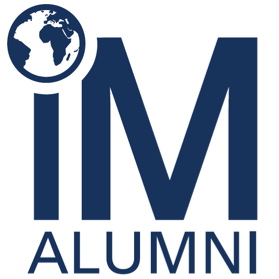Posted on 19/10/2017

Dominik (bottom row, far right) with his Jogku team in South Korea
I first considered Mexico as my hottest favorite for the semester abroad so I could improve my Spanish skills. As the deadline to apply for a university came closer, I remembered my stay in the USA where I lived together with my “brother from another mother” Richard Shin. I was fascinated by his personality, his focus on studying and the Korean culture overall. With those memories and a gut feeling which was telling me to go to a country where everything is totally different from what I was used to, I opted for South Korea. I fell in love with that country and the people virtually upon arrival. Every Saturday, we played “Jokgu” – soccer-tennis describes it best – with local people. There was no way of communicating through words – but body language was enough for us to understand each other. I also met up again with Richard and got the chance to dive into the great Korean culture; we went fishing, celebrated “Chuseok” – Korean thanks giving – and went out to do what Koreans do! Living together with his family for a time was an experience I will never forget and I realized again that spoken language is not needed to understand each other. I felt and still feel like a Korean – an experience I will never forget!

Dominik Trost 2017
Graduated from BSc IM in 2016
My best friend Sven from my kindergarten days and I had often talked about setting up our own business. So during our studies – Sven was studying IT and I was in my second IM year – we started developing and selling small applications. By the time I graduated we had enough income to go full-time. At that time, we got the opportunity to develop a complex job/vacancy tool which was aimed to be implemented in big HR companies. Soon we had 8 employees and interns (in summer 2017 up to 12) in our office in Lenzburg. We decided to become a legal entity and founded Comptex Solution Engineering GmbH. As we were really passionate about the potential of Augmented Reality (AR), we opted to put all our resources into holo|one – a spin off which focuses solely on developing AR-solutions. Two months ago, we saw that Airbus was holding a competition on Innovation Solutions in the Aeronautic Sector. We sent them a concept where AR plays an integral part in maintenance procedures of aircrafts. Currently, for instance, when planes go in for maintenance or repairs the engineers still use physical paper checklists, manuals which have graphs of all the parts etc. With our application they put on AR glasses, go to the engine and see through them and receive all necessary information of the respective part they are working on. They have their updated checklist pinned virtually next to the maintained or fixed part and can search the endless manuals by voice. Another part of the application is designed for trouble-shooting events – if a plane lands where there are no certified Airbus engineers then instead of flying people out, a general engineer can wear the glasses and the Airbus team in another location can see what they see, support, guide and even draw directly in the field of view of the engineer. The great thing about our solution is that it is neither limited to the Aeronautic sector nor to maintenance. Having a remote expert available everywhere, following a checklist while working as well as making use of browsing endless manuals by voice within seconds open up opportunities for many more business processes.
We got financial support and the opportunity to be part of an accelerator/incubator project in Hamburg. We started there at the beginning of October and it’s very exciting. The next two months are devoted to identifying customer desirability. There might also be changes in the overall concept due to additional findings in field research and interviews. By January, we have to make sure that our solution is technically feasible. Do engineers and mechanics want work with additional glasses to complete their tasks? Would it even be an option to use tablets or smartphone for this solution? By spring there will be the demo day where we present a prototype and explain the business viability of our solution. During this time we get a lot coaching and support from Airbus. There is a lot to do but it’s very exciting.
How did studying IM help?I took the Entrepreneurship major and the many sessions practising how to pitch were very valuable. When we flew to Hamburg to pitch our concept to Airbus we knew we only had 9 minutes to pitch. Because I had had so much experience, I was confident and focussed. Also, all the information about investors helped a lot when we were setting up our own company, and of course then there’s all the stuff we learnt about marketing and intercultural communication….. all of this is useful now.


No responses yet